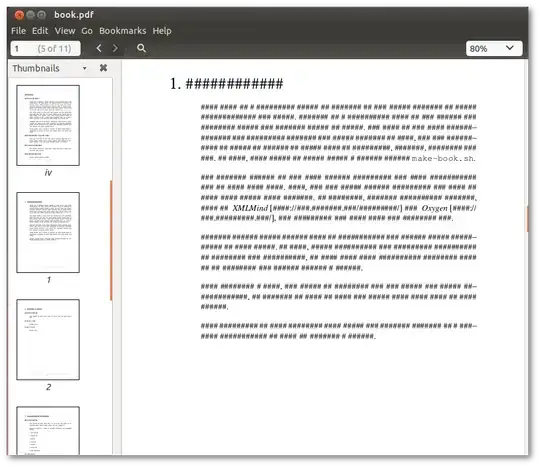I'm trying to use Microsoft's Arial Unicode font in a DocBook project. The project is using Apache's FOP. FOP is installed in /usr/local/bin/fop-1.1.
The Arial_Unicode.ttf font is installed in /usr/share/fonts/truetype/:
$ ls -l /usr/share/fonts/truetype/
total 22812
drwxr-xr-x 2 root root 4096 Oct 22 11:43 abyssinica
-rw-r--r-- 1 root root 23278008 Oct 8 2013 Arial_Unicode.ttf
drwxr-xr-x 2 root root 4096 Nov 7 12:02 dejavu
...
FOP's configuration file is located at:
$ find /usr/local/bin/fop-1.1/ -iname *.xconf
/usr/local/bin/fop-1.1/conf/fop.xconf
I opened fop.xconf and added two directory elements and auto-detect element under renderer for mime="application/pdf" per Apache's Bulk Font Configuration:
<renderers>
<renderer mime="application/pdf">
<filterList>
...
</filterList>
<fonts>
<directory recursive="true">/usr/share/fonts</directory>
<directory recursive="true">/usr/share/fonts/truetype</directory>
<!-- automatically detect operating system installed fonts -->
<auto-detect/>
...
</fonts>
...
When I build my book, nearly all the glyphs are #:

When using a different Object Processor (such as RenderX's xep), the document renders. So I believe the DocBook XML is good (specifically, the custom translation that uses Arial_Unicode.ttf).
How do I make Apache FOP honor its configuration?